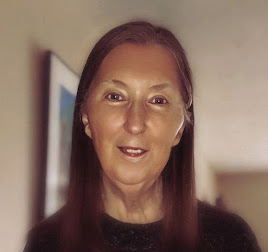The Third Black Beacon Book of Mystery is out now and to celebrate this new volume of detective mysteries guaranteed to put your little grey cells to work, we’re interviewing the contributing authors. Do you dare peer into their devious minds, where criminal masterminds battle brilliant sleuths, private eyes, and police detectives? Settle down in your favourite armchair and get ready to pit your wits against the finest voices penning mystery puzzles today!
Hi Chris,
It’s always tricky interviewing a mystery writer about a particular story because we don’t want to give anything away, but can you tell us (carefully) where the idea for your story came from?
I was on a golden age crime fiction reading jag after writing several contemporary crime thriller short stories as I was keen to do a murder mystery. To set the story in the past was a natural fit for the form, but it seemed to me the 1920s and 30s were overdone, so I thought the Edwardian era might offer different opportunities. For Australia, this was a period of change and optimism – we had become an independent country on January 1, 1901, just a few weeks before Queen Victoria died.
The other advantage, of course, in setting a mystery in the past is that you don’t have to worry about technology and modern policing techniques thwarting the investigation before it has even begun!
My protagonist Frankie came along when I was reading old Sydney newspapers from the early 1900s to get a feel for the era and ended up being drawn in to colourful accounts of charity balls and fashion tips on the “ladies’ pages”. A plucky young society correspondent would be witness to all kinds of shenanigans, and so Frankie arrived.
There are several sub-genres of mystery fiction, but the stories in this anthology are traditional fair-play mysteries in which the reader can try to solve the puzzle before all is revealed. What makes this kind of mystery so timeless?
We are driven to solve puzzles, to find meaning, to make connections – it’s innate and the murder mystery satisfies both these cravings and the human need for competition, as the reader is effectively trying to outdo the detective!
Do you have a favourite fictional detective?
I adore the Jack Irish mysteries by the late great Australian author Peter Temple. But my favourite is Simon Brett’s actor-detective character Charles Paris as he is played by Bill Nighy in the full-cast BBC radio play versions of Brett’s books (you can find them on Spotify and occasionally the BBC Sounds app).
Is this the first mystery your protagonist has solved?
It is. "Storm in a Teapot" is very much the origin story for Frankie and her friend JK, but there is more to come.
If you were a detective, private investigator, or amateur sleuth, what would be your trademark quirk?
I’d have a fondness for edibles!
Do you have a writing routine or particular requirements for a writing session?
I fit writing around my work day. I start at 10am so I get up just after 6am and get stuck in for a couple of hours. I try to write every day and at least 500 words a session.
What are you working on now?
A follow-up to "Storm in a Teapot"! This will be a much longer story though, so I can build more of Frankie’s world and create a picture of Sydney in the early 1900s. It unfolds the summer after the events of "Storm in a Teapot" and begins with the murder of a theatre impresario on the opening night of his new variety show.
Where can we find you online?
X: @ChrisHookjourno
Instagram: @MrChrisHook
Thanks for playing along!





